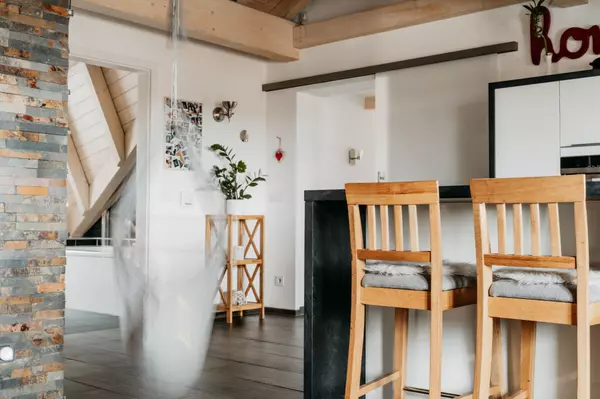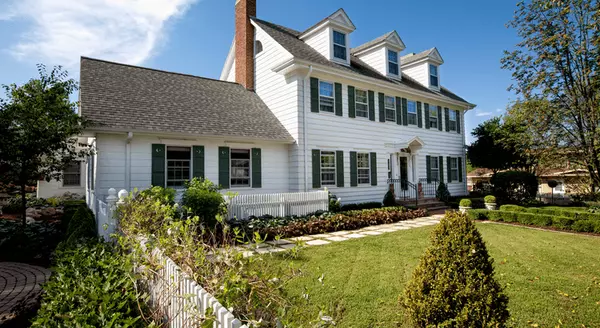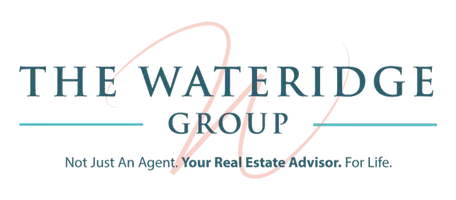
Gen Z: The Next Generation is Making Moves in The Northern Virginia Housing Market
Generation Z (Gen Z) is ready to embark on the journey of homeownership, a significant step towards financial independence and establishing their roots! In fact, the latest Home Buyers and Sellers Generational Trends Report from the National Association of Realtors (NAR) reveals that 30% of Gen Z buyers have transitioned straight from living with their parents to owning their own homes. If you're a member of Gen Z in Northern Virginia and eager to join the ranks of homeowners, here's some insight into why and where your peers are making this life-changing investment. Why Gen Z in Northern Virginia Aspires to Be Homeowners A recent survey conducted by Rocket Mortgage provides valuable insights into what motivates Gen Z buyers in to purchase a home. For many, the desire to start or grow a family is a primary motivator, with 34% of respondents citing this as their main reason for pursuing homeownership. As one of the nation's most family-friendly regions, Northern Virginia offers a thriving community for young families. Another compelling reason for Gen Z to buy a home is the stability it offers. Approximately 20.8% of those surveyed believe that homeownership provides a sense of stability in their lives. When you have a fixed-rate mortgage, your monthly payment remains consistent over the life of your loan, usually 15 to 30 years. This stability shields you from the uncertainty of rising rental costs, making homeownership an attractive choice. Whether you're looking to establish your family or seeking financial stability, rest assured that many of your Northern Virginia peers share these motivations, making homeownership an appealing option. Gen Z's Next Stop: Where are They Making Their Moves? If you're ready to take the plunge into homeownership in Northern Virginia, knowing where your peers are finding their homes can be instrumental in your search. According to a recent survey by LendingTree, Gen Z buyers are prioritizing more affordable areas to maximize their buying power, especially in the face of today's mortgage rates. While many Gen Z individuals appreciate the convenience and excitement of city life, they also value the affordability, open spaces, and proximity to nature that suburban areas offer. Jacob Channel, Senior Economist at LendingTree, notes that "they want to live in a city, but they also want to be close to nature." Finding a home that strikes this balance requires local expertise. Collaborating with a trusted real estate professional who knows Northern Virginia inside and out can help you identify neighborhoods within your budget. They can also highlight the amenities and features of each location, aligning them with your lifestyle goals. Furthermore, they can advise you on how remote work options can broaden your search parameters. Bottom Line If you're a member of Gen Z in Northern Virginia and are ready to begin your homeownership journey or simply want to learn more about the process, we invite you to connect with us! By doing so, you'll have a dedicated guide to assist you in finding a home that not only fits your budget but also aligns perfectly with your Northern Virginia lifestyle aspirations. Let's make your homeownership dreams a reality!

Why You Don't Need to Fear The Return of Adjustable-Rate Mortgages
If you remember the housing crash back in 2008, you may recall just how popular adjustable-rate mortgages (ARMs) were back then. And after years of being virtually nonexistent, more people are once again using ARMs when buying a home. Let’s break down why that’s happening and why this isn’t cause for concern. Why ARMs Have Gained Popularity More Recently This graph uses data from the Mortgage Bankers Association (MBA) to show how the percentage of adjustable-rate mortgages has increased over the past few years: As the graph conveys, after hovering around 3% of all mortgages in 2021, many more homeowners turned to adjustable-rate mortgages again last year. There’s a simple explanation for that increase. Last year is when mortgage rates climbed dramatically. With higher borrowing costs, some homeowners decided to take out this type of loan because traditional borrowing costs were high, and an ARM gave them a lower rate. Why Today’s ARMs Aren’t Like the Ones in 2008 To put things into perspective, let’s remember these aren’t like the ARMs that became popular leading up to 2008. Part of what caused the housing crash was loose lending standards. Back then, when a buyer got an ARM, banks and lenders didn’t require proof of their employment, assets, income, etc. Basically, people were getting loans that they shouldn’t have been awarded. This set many homeowners up for trouble because they couldn’t pay back the loans that they never had to qualify for in the first place. This time around, lending standards are different. Banks and lenders learned from the crash, and now they verify income, assets, employment, and more. This means today’s buyers actually have to qualify for their loans and show they’ll be able to repay them. Archana Pradhan, Economist at CoreLogic, explains the difference between then and now: “Around 60% of Adjustable-Rate Mortgages (ARM) that were originated in 2007 were low- or no-documentation loans . . . Similarly, in 2005, 29% of ARM borrowers had credit scores below 640 . . . Currently, almost all conventional loans, including both ARMs and Fixed-Rate Mortgages, require full documentation, are amortized, and are made to borrowers with credit scores above 640.” In simple terms, Laurie Goodman at Urban Institute helps drive this point home by saying: “Today’s Adjustable-Rate Mortgages are no riskier than other mortgage products and their lower monthly payments could increase access to homeownership for more potential buyers.” Bottom Line If you’re worried today’s adjustable-rate mortgages are like the ones from the housing crash, rest assured, things are different this time. And, if you’re a first-time homebuyer and you’d like to learn more about lending options that could help you overcome today’s affordability challenges, reach out to a trusted lender.

More Jobs & Better Pay Leads to More Buyer Demand
There’s been talk about a recession for quite a while now. But the economy has been remarkably resilient. Why? One reason is employment and wages have stayed strong. Let’s look at the latest information on each one and why both are good news if you’re thinking about selling your house. More Jobs Are Being Created Instead of facing the job losses typical of any recession, the economy has been growing and adding jobs. According to the Bureau of Labor Statistics (BLS), 187,000 jobs were created in July, which is up from the 185,000 created in June. That means more people are finding work. In fact, so many jobs are being added that the unemployment rate is far lower than the long-term average of 5.7% (see graph below): A low unemployment rate means that most people who want to work are finding jobs. When people have jobs, they have steady incomes – and that can help set them up to consider homeownership. People Are Making More Money And data also shows hourly earnings have been going up pretty steadily over the past few years (see graph below): When wages rise, people have more money that they could save or use toward buying a home. This increase in income helps offset some of the affordability challenges in the housing market today. Affordability depends on three main factors: wages, home prices, and mortgage rates. With higher home prices and mortgage rates right now, Builder Online summarizes how growing wages can help: “The housing market has been a beneficiary of the strong economy and labor market. Many of those employed have saved money over the past few years and used those funds toward a down payment on a home.” If you’re thinking about selling your house, a strong job market, growing wages, and the resulting buyer demand is fantastic news. It means there’s a larger pool of potential buyers out there who are in a position to pursue their dreams of homeownership. Bottom Line With more jobs and rising wages creating eager buyers, there’s a lot going in your favor. Let’s connect so you have someone who can guide you through the process of selling your house, from setting the right price to getting your home ready to show.
Categories
Recent Posts










